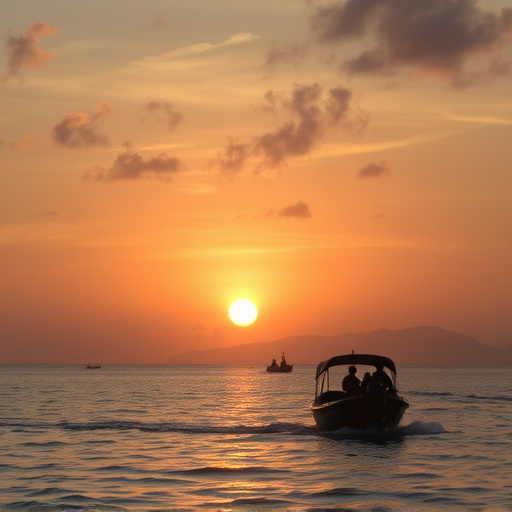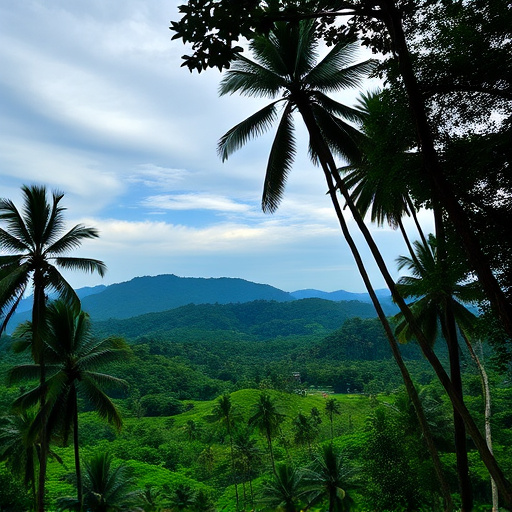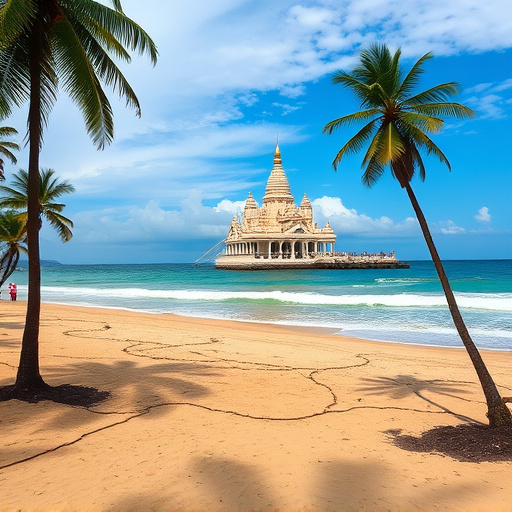In Sri Lanka (Srilanka), tipping isn't mandatory but appreciated, around 5-10% for good service, more in upscale settings. Respect local customs and timing of visit. Restaurant and hotel staff play key roles in enhancing visitor experience and promoting sustainable tourism. Always consider local etiquette and consult hotel staff for guidance on tipping amounts. Best time to visit is during dry season (December-April) with pleasant weather. Avoid black market currency exchanges, prefer official money exchangers.
“Exploring Sri Lanka’s dining etiquette reveals a unique culture of hospitality and gratitude. This guide navigates the local customs of tipping, offering insights into the roles and expectations of restaurant and hotel staff. From understanding the importance of non-monetary appreciation to alternative ways to show gratitude, it delves into the heart of Sri Lankan hospitality. Discover how to enhance your experiences by respecting local traditions, ensuring a memorable journey through this beautiful island nation.”
- Local Customs and Tipping Culture in Srilanka
- Restaurant and Hotel Staff Roles and Expectations
- Common Etiquette for Dining Out in Srilanka
- Alternative Ways to Show Appreciation in Srilanka Hotels
Local Customs and Tipping Culture in Srilanka

In Sri Lanka, tipping is not as mandatory or expected as in some other cultures, but it’s still considered a kind gesture. The local custom is influenced by a mix of Buddhist values and colonial heritage, leading to a more subtle approach to monetary gestures. Generally, if you receive good service, a small amount—around 5-10%—is appreciated. This gesture is often overlooked in smaller cafes or street food stalls, but in upmarket restaurants or luxury hotels, patrons may choose to tip based on their individual satisfaction.
When visiting Sri Lanka, it’s worth noting that understanding local customs is essential for a respectful and enjoyable experience. The currency exchange in Sri Lanka isn’t typically the driver behind tipping decisions; rather, it’s about recognizing and valuing good service. For instance, if you’re planning a trip during the best season to visit Sri Lanka—which offers pleasant weather and vibrant cultural events—you might encounter more varied service standards, further guiding your decision to tip accordingly. Give us a call at history of sri lanka for kids to learn more about local practices that enhance your travel experience.
Restaurant and Hotel Staff Roles and Expectations

In Sri Lanka, restaurant and hotel staff play pivotal roles in enhancing your experience as a visitor. Their primary responsibility is to ensure guest satisfaction by providing excellent service, catering to needs, and offering recommendations tailored to local knowledge and sustainable tourism practices. In return, it’s customary and appreciated for visitors to show gratitude through tips, which contribute significantly to the industry’s growth and staff livelihoods.
When visiting Sri Lanka, remember that tipping isn’t mandatory but is a thoughtful gesture. Consider leaving around 10% of your bill as a token of appreciation for waitstaff, bellhops, and other service providers. This practice supports not just individuals but also promotes sustainable tourism sri lanka initiatives by encouraging ethical and fair treatment of workers in the hospitality sector. If you’re unsure, observe local customs or ask your hotel staff about customary tipping amounts; they’ll be happy to guide you on visiting us at sri lanka photography tips for beginners anytime.
Common Etiquette for Dining Out in Srilanka

When dining out in Sri Lanka, it’s customary to tip your waitstaff as a token of appreciation for their service. The standard practice is to leave around 10% of the total bill as a tip, though this can vary based on the quality of service and personal preference. In high-end restaurants, tips might be expected to be higher, reflecting the excellent service often found in such establishments.
Beyond tipping, understanding local dining etiquette will enhance your experience. Sri Lankans value respect and kindness, so maintaining a polite demeanor is essential. If you’re joining local festivals or celebrating special occasions, it’s customary to share food with others at the table. These gatherings are an integral part of the country’s cultural fabric, offering unique opportunities to immerse yourself in sri lanka national parks safaris, witness their vibrant local festivals and celebrations, and support their dedicated wildlife conservation efforts. For any queries, feel free to reach out to us at budget travel tips Sri Lanka for more insights into navigating these social norms during your culinary adventures.
Alternative Ways to Show Appreciation in Srilanka Hotels

In Sri Lanka, tipping isn’t as mandatory as in some other countries, but it’s still appreciated to show gratitude for service. While many hotels and restaurants do accept tips, especially in tourist hotspots, it’s not always expected or required. Instead of leaving a tip, consider these alternative ways to express your appreciation during your stay: enjoy the local hospitality, explore authentic Sri Lankan cuisine by asking staff for recommendations on where to find it, or even engage them in conversation to learn more about their culture and practices, like sustainable tourism in Sri Lanka.
Remember, the best time to visit Sri Lanka is during the dry season (from December to April) when the weather is sunny and pleasant. When exchanging currencies, be mindful of black market exchanges; always opt for official money exchangers to ensure security and fairness.
When visiting Sri Lanka, it’s important to be mindful of local customs regarding tipping. While not mandatory, leaving a tip is appreciated and considered good manners for restaurant and hotel staff who provide quality service. Remember that genuine appreciation through kind words and positive feedback can often go further than monetary tips. By understanding the cultural norms and showing respect for their work, you contribute positively to the hospitality experience in Sri Lanka.
